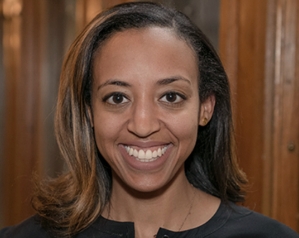
Jari Haile, PT, DPT, OCS, ATC, PES
Adjunct Instructor of Clinical Physical Therapy
Professional Interests
Dr. Jari Haile’s treatment approach is the perfect blend of movement analysis, neuromuscular retraining and skilled manual therapy to produce optimal results. Dr. Haile is able to pinpoint faulty mechanics and movement patterns that contribute to pain. She incorporates skilled manual therapy to elongate shortened tissues, stretch tightened muscles, align the spine and decrease compression on the body’s joints. She then taps into the body’s neural pathways to “retrain the brain” how to move properly and finally break the pain-producing cycle.
Dr. Jari Haile is an alumnus of the University of Southern California doctor of physical therapy program. She also completed a rigorous residency program at USC, specializing in the evaluation and management of patients with orthopedic pathologies. During this time, Dr. Haile was a research investigator for the study “Relevance of Scapular Dyskinesis in Patients with Shoulder Pain,” where she assisted with the study’s approval process and data collection. After working for some years, she was invited back to USC as adjunct faculty, teaching in the courses “Basics of Patient Management,” “Clinical Management of the Patient with Musculoskeletal Dysfunction,” “Special Topics in Therapeutic Exercise” and “Clinical Exercise Physiology.”
Dr. Haile is originally from Maryland. She currently specializes in digital health practices as a telehealth physical therapist. During her time in Los Angeles and New York City, she had more than a decade of experience treating patients in out-patient, orthopedic and sports clinics. She is also an athletic trainer and has provided game-day medical coverage to high school, collegiate, and private events. Additionally, she treated professional athletes (NFL, NBA, MLB, NHL, USA Track and Field) during her time at the Institute of Sports Physical Therapy.
Dr. Haile’s greatest passion is education. Her thirst for knowledge and dedication to sharing that knowledge allows patients to truly understand their condition. “Once a patient understands the root cause of their pain it opens the road to full recovery and decreases the likelihood of reoccurrence.”


